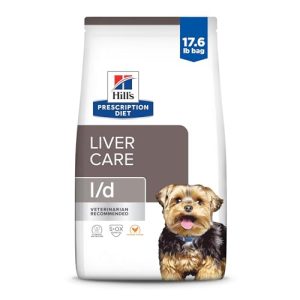Have you ever noticed your dog throwing up and wondered if allergies could be the cause? It’s upsetting to see your furry friend uncomfortable, and you want to understand what’s really going on.
Allergies in dogs don’t just cause itching or sneezing—they can sometimes lead to vomiting too. If you’ve been searching for clear answers about your dog’s health, this article will help you uncover the connection between allergies and vomiting. Keep reading to find out what signs to watch for and what steps you can take to help your dog feel better fast.
Common Causes Of Vomiting In Dogs
Vomiting is a common issue in dogs and can be caused by many different factors. Understanding the root cause helps you decide the best way to help your furry friend. Some causes are simple and temporary, while others might need urgent veterinary care.
Dietary Indiscretion
Dogs often eat things they shouldn’t, like garbage, spoiled food, or foreign objects. This can irritate their stomach and lead to vomiting. Have you noticed your dog getting into the trash or snatching food off the counter? This habit can cause sudden vomiting episodes that clear up once the stomach settles.
Switching to a bland diet for a day or two might help your dog recover. But if vomiting continues or your dog seems weak, it’s time to see a vet.
Infections And Parasites
Infections from bacteria or viruses can upset your dog’s stomach. Parasites like worms also cause vomiting and other digestive problems. If your dog has diarrhea, lethargy, or loss of appetite along with vomiting, infections could be the reason.
Regular parasite control and vaccinations are key to preventing these illnesses. If you suspect an infection, prompt vet care can stop it from getting worse.
Chronic Diseases
Some long-term health issues cause ongoing vomiting. Conditions like kidney disease, liver problems, or pancreatitis can affect your dog’s digestion over time. If your dog vomits repeatedly or shows other signs like weight loss or excessive thirst, these diseases might be involved.
Managing chronic diseases often requires special diets and medications prescribed by your vet. Paying attention to these signs early can help your dog live a more comfortable life.

Credit: rockykanaka.com
Understanding Allergies In Dogs
Allergies in dogs can be confusing and worrying, especially when they cause unexpected symptoms like vomiting. Understanding what triggers these allergic reactions and how they manifest is key to helping your furry friend feel better. Have you noticed your dog getting sick after certain foods or outdoor activities? That might be more than just a coincidence.
Types Of Allergies
Dogs can suffer from several types of allergies, each affecting them differently.
- Food Allergies:These occur when your dog’s immune system reacts to specific ingredients in their diet, such as beef, chicken, dairy, or grains.
- Environmental Allergies:Pollen, mold spores, dust mites, and even certain grasses can trigger allergic reactions, especially during specific seasons.
- Contact Allergies:Sometimes, your dog may react to something they touch, like certain shampoos, cleaning products, or plants.
- Flea Allergy Dermatitis:This is a reaction to flea bites, causing intense itching and discomfort.
Knowing which type of allergy your dog has can help pinpoint the cause of symptoms like vomiting.
Symptoms Of Allergies
Allergic reactions don’t always look the same, and vomiting can be one of several signs.
- Skin Issues:Itching, redness, swelling, and hot spots are common indicators.
- Digestive Problems:Vomiting, diarrhea, and gas often accompany food allergies.
- Respiratory Signs:Sneezing, coughing, and wheezing may occur with environmental allergies.
- Behavior Changes:Your dog might seem restless or more irritable due to discomfort.
If your dog vomits soon after eating or exposure to certain environments, consider allergies as a possible cause. Have you tracked when the vomiting happens? That information can be crucial for your vet.
Link Between Allergies And Vomiting
Understanding the link between allergies and vomiting in dogs can help you spot problems early and take the right steps. Vomiting may be a sign that your dog’s body is reacting to something harmful, including allergens. Knowing how allergies affect your dog’s digestive system can give you clues to improve their health and comfort.
Allergic Reactions In Dogs
Allergic reactions occur when your dog’s immune system mistakenly attacks harmless substances like pollen, certain foods, or dust mites.
These reactions often cause symptoms such as itching, swelling, or sneezing. But they can also affect your dog’s stomach and intestines, leading to nausea or vomiting.
You might notice your dog scratching more or developing red patches on their skin alongside vomiting. These signs together can indicate an allergy rather than a simple tummy upset.
How Allergies Trigger Vomiting
When your dog’s immune system reacts to an allergen, it releases chemicals like histamines. These chemicals can irritate the stomach lining, causing discomfort and vomiting.
Food allergies are a common cause. For example, if your dog is allergic to chicken or beef, eating these proteins could trigger vomiting soon after meals.
Sometimes, environmental allergens like pollen can cause systemic reactions that upset your dog’s digestive system. Have you noticed your dog vomiting more during certain seasons or after walks in the park?
Tracking your dog’s symptoms alongside their diet and environment can help identify the triggers. This way, you can work with your vet to find effective treatments and prevent future episodes.
Diagnosing Allergies In Dogs
Diagnosing allergies in dogs can be tricky because symptoms often overlap with other illnesses. Vomiting may signal allergies but also many other health issues. A proper diagnosis helps find the root cause and guides effective treatment. Veterinarians use various tools to assess and confirm allergies in dogs. Understanding these steps helps pet owners prepare for the process and support their dog’s health.
Veterinary Assessments
Veterinarians start by gathering a detailed health history. They ask about diet, environment, and symptoms like vomiting or itching. A physical exam follows to check the skin, ears, and overall condition. This exam looks for signs of allergic reactions such as redness or swelling. The vet may also observe the dog’s behavior and breathing patterns. These observations help narrow down possible allergy causes.
Common Diagnostic Tests
Several tests help confirm allergies in dogs. Skin tests involve exposing small areas to allergens and watching for reactions. Blood tests measure allergy-related antibodies in the dog’s system. Both tests identify specific allergens triggering symptoms. Food trials are also common; they involve feeding a special diet to spot food allergies. Sometimes, vets perform biopsy or stool tests to rule out other problems. Each test provides clues to uncover hidden allergies causing vomiting or discomfort.
Treatment Options For Allergies
Managing allergies in dogs requires a clear and focused treatment plan. The goal is to reduce symptoms and improve your dog’s comfort. Treatments vary depending on the allergy type and severity.
Proper care helps prevent vomiting caused by allergic reactions. Below are common treatment options to consider.
Medications And Therapies
Medications often help control allergic reactions and ease symptoms. Antihistamines reduce itchiness and swelling. Steroids may be prescribed for severe cases. These drugs calm the immune system’s response.
Immunotherapy, or allergy shots, is another option. It works by gradually desensitizing your dog to allergens. This method can lower the frequency and intensity of allergic reactions over time.
Dietary Adjustments
Food allergies can cause vomiting and other symptoms. Switching to a hypoallergenic or limited ingredient diet often helps. These diets avoid common allergens like beef, chicken, or grains.
Consult your vet for a proper elimination diet plan. This approach identifies the specific foods causing the allergy. Feeding your dog a balanced, allergen-free diet supports digestive health and reduces vomiting risks.

Credit: backbayvet.com
Preventing Allergic Reactions
Preventing allergic reactions in dogs is key to stopping symptoms like vomiting before they even start. Knowing what triggers your dog’s allergies helps you take control and keep them comfortable. Let’s look at practical ways you can identify these triggers and manage your dog’s health over time.
Identifying Allergens
Start by paying close attention to your dog’s environment and diet. Common allergens include certain foods, pollen, dust mites, and even flea bites. Have you noticed your dog vomits after eating a particular treat or spending time outside? These clues are important.
Keep a detailed journal of your dog’s activities, meals, and symptoms. This record can reveal patterns you might miss otherwise. Sometimes, a simple change like switching to a limited ingredient diet or avoiding grassy areas can make a huge difference.
Long-term Management Strategies
Once you identify allergens, the next step is to reduce your dog’s exposure as much as possible. This might mean washing their bedding weekly, using air purifiers, or choosing hypoallergenic dog food. These small changes add up.
Regular vet visits are essential to adjust your dog’s care plan. Your vet may suggest antihistamines or prescribe medication to control severe allergies. Have you considered how consistent care can improve your dog’s quality of life over months and years?
Remember, managing allergies is not a one-time fix. It requires ongoing effort and observation. You hold the power to make your dog’s life healthier by staying proactive and responsive to their needs.
When To Seek Veterinary Care
Recognizing when your dog’s vomiting might be linked to allergies is crucial. While mild symptoms can often be managed at home, some situations need immediate veterinary attention to prevent complications. Knowing the warning signs helps you act quickly and protect your furry friend’s health.
Signs Of Severe Reactions
Watch closely for these serious symptoms that go beyond simple upset stomach:
- Persistent vomitinglasting more than 24 hours
- Excessive droolingor foaming at the mouth
- Swelling of the face, lips, or throat, which can cause difficulty breathing
- Weakness or collapseindicating shock or severe distress
- Bloody vomit or diarrhea, which signals internal irritation or injury
- Severe itching or hivesspreading rapidly across the body
If you notice any of these signs, do not wait. Your dog could be experiencing an allergic reaction that requires urgent care.
Emergency Care Guidelines
If your dog shows severe allergic symptoms, here’s what to do immediately:
- Stay calm.Your pet can sense your stress, and it may worsen their condition.
- Remove any possible allergensfrom your dog’s environment, such as certain foods, plants, or chemicals.
- Contact your veterinarian or an emergency animal hospitalright away to describe the symptoms and get advice.
- Do not try to induce vomitingunless your vet specifically instructs you to do so.
- Keep your dog comfortable and uprightto help with breathing if swelling is present.
Have you ever rushed your dog to the vet only to find it was an allergy? Those moments can be stressful, but quick action saves lives. Always trust your instincts when your dog’s health feels off.

Credit: www.parkviewpetcenter.com
Frequently Asked Questions
Can Allergies Cause Vomiting In Dogs?
Yes, allergies can cause vomiting in dogs. Allergic reactions may trigger gastrointestinal upset, leading to nausea and vomiting.
What Are Common Allergy Symptoms In Dogs?
Common symptoms include itching, sneezing, watery eyes, and gastrointestinal issues like vomiting or diarrhea.
How Do I Know If My Dog’s Vomiting Is Allergy-related?
If vomiting occurs alongside itching, ear infections, or skin issues, allergies might be the cause. Consult a vet for diagnosis.
Can Food Allergies Make Dogs Throw Up?
Yes, food allergies can cause vomiting. Dogs may react to certain ingredients, causing digestive upset and vomiting.
Conclusion
Allergies can cause dogs to throw up sometimes. Watching your dog’s behavior helps spot problems early. Treating allergies quickly keeps your pet healthy and happy. Always talk to a vet if vomiting happens often. Good care and attention make a big difference.
Your dog deserves comfort and love every day. Simple steps can protect your furry friend well. Stay alert and act fast to avoid trouble.

Emily Barker is the founder of ChillDogLife.com, a space dedicated to helping pup parents discover the best dog products, lifestyle tips, and cozy ideas for happier homes.
A lifelong dog lover, Emily combines her passion for pets with a knack for research to share trusted recommendations on everything from toys and furniture to health and everyday care.
Her goal is simple: to make life easier, stylish, and more joyful for dogs and the people who love them.







